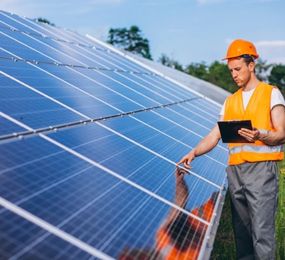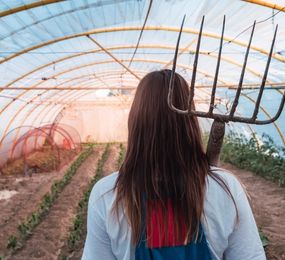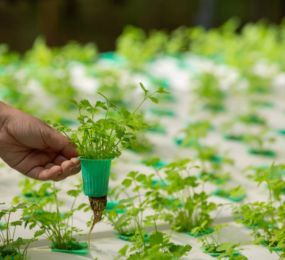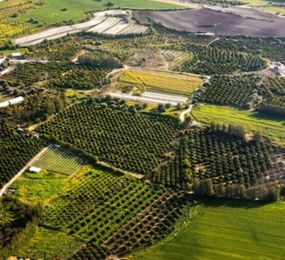As the 2nd Annual AgriVoltaics Europe event approaches, scheduled to take place on 7th - 9th November, 2023, at the esteemed Steigenberger Airport Hotel in Amsterdam, Netherlands, one significant area of discussion revolves around the impact of the Covid-19 pandemic on the global agrivoltaic market. The unprecedented challenges posed by the pandemic have reverberated across various industries, and agrivoltaics is no exception. In this article, we delve into the effects of Covid-19 on the agrivoltaic market and explore strategies to navigate through these challenges.
1. Disruptions in Supply Chains:
The Covid-19 pandemic disrupted global supply chains, affecting the availability and delivery of components necessary for agrivoltaic systems. Border closures, travel restrictions, and lockdown measures led to delays in the procurement of solar panels, mounting structures, and other essential equipment. These disruptions impacted project timelines, installation schedules, and overall market growth. However, as the situation gradually stabilizes, the industry is adapting and finding alternative solutions to ensure the continuous supply of components.
2. Financing and Investment Challenges:
The pandemic has also presented challenges in terms of financing and investment in the agrivoltaic sector. Economic uncertainties and market volatility have made investors more cautious, leading to a slowdown in funding for agrivoltaic projects. Reduced access to capital and stricter lending criteria have impacted project development and expansion plans. However, the growing recognition of the importance of sustainable food production and renewable energy may drive renewed interest and investment in agrivoltaics as the global economy recovers.
3. Shifts in Priorities and Consumer Demand:
The pandemic has prompted shifts in consumer priorities and demand patterns. With a heightened focus on health, food security, and resilience, there is an increased appreciation for sustainable agriculture and locally sourced food. Agrivoltaics, with its ability to combine crop production and renewable energy generation, aligns with these emerging priorities. The industry has an opportunity to leverage this shifting demand by promoting the benefits of agrivoltaics, including reduced reliance on imports, enhanced resource efficiency, and lower carbon footprints.
4. Policy and Regulatory Implications:
Covid-19 has also impacted policy and regulatory frameworks governing the agrivoltaic sector. Governments worldwide have had to prioritize public health and economic recovery, diverting attention and resources from policy development and incentives for renewable energy and sustainable agriculture. However, as governments increasingly recognize the importance of addressing climate change and building resilient food systems, there may be renewed emphasis on supporting agrivoltaics through favorable policies, subsidies, and incentives.
5. Accelerating Digital Transformation:
The pandemic has accelerated the adoption of digital technologies across industries, including agrivoltaics. Remote monitoring, data analytics, and virtual collaboration tools have become essential for project management, system optimization, and knowledge sharing. This digital transformation enables remote inspections, real-time data analysis, and remote project planning, facilitating the continued growth and development of the agrivoltaic market even during times of physical restrictions and travel limitations.
The impact of the Covid-19 pandemic on the global agrivoltaic market cannot be ignored. Supply chain disruptions, financing challenges, shifts in consumer demand, and policy implications have all presented obstacles. However, with resilience, adaptation, and innovation, the industry can navigate through these challenges. As the 2nd Annual AgriVoltaics Europe event brings together industry leaders and stakeholders, the presentation on the impact of Covid-19 on the agrivoltaic market will provide valuable insights, foster discussions, and pave the way for collaborative strategies to overcome these challenges. By embracing these lessons and leveraging the growing recognition of the importance of sustainable food production and renewable energy, the agrivoltaic market can emerge stronger and contribute to a more sustainable and resilient future.
To register or learn more about the Forum please check here:http://bit.ly/3kR0v2R.
For more information and group participation, contact us: [email protected]
















